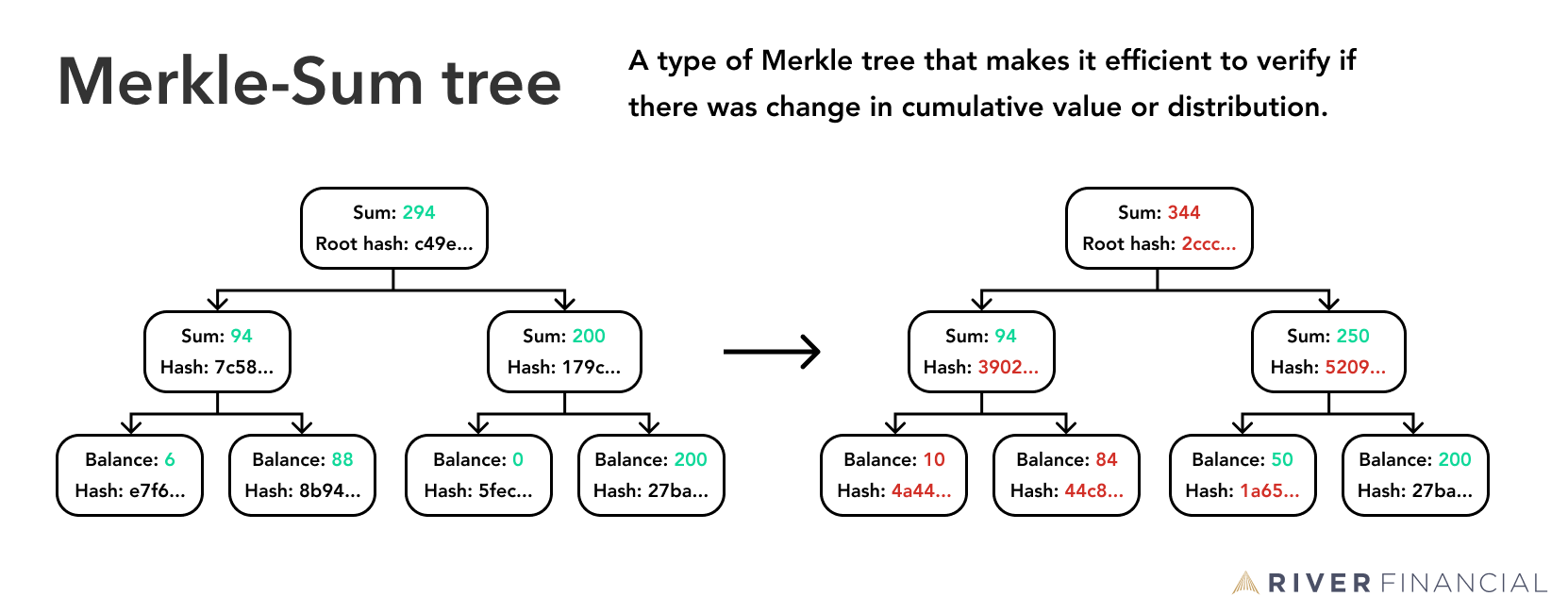Merkle-Sum Tree
1 min read
A Merkle Sum Tree is a type of Merkle tree that makes it efficient to verify that there is no change in the cumulative value or distribution of the leaves of a Merkle Tree.
This property is obtained by putting numeric values in each leaf of the tree, and then summing those values up in the branch above it. Ultimately, the root of the Merkle-Sum tree contains the sum of the total values in the tree.
Each level of the Merkle Tree also contains the hash of the two branches below it, as with a regular Merkle tree. Thus, the root of the Merkle tree contains a single hash and a numeric value. So long as the hash does not change, no data in the tree has changed, and so long as the numeric value does not change, the sum of all leaves inside the tree has not changed. These two data allow observers to efficiently audit the total supply and reallocations of an asset without needing to verify the location of every unit of the asset.
